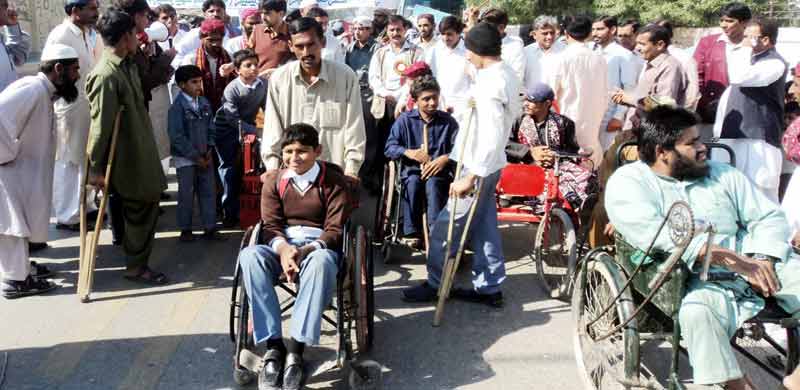
As the time for the next round of elections approaches, we need to ensure that Pakistan’s marginalized groups are ensured political participation and electoral empowerment, something they have been denied historically, despite constitutional provisions.
A recent conference held by the Human Rights Commission of Pakistan (HRCP) discussed barriers in the electoral system leading to disenfranchisement and proposed measures to increase inclusiveness and transparency.
President of the Potohar Mental Health Association Zulqarnain Asghar “underscored inaccessibility at polling stations for persons with disabilities, stressing that a variety of disabilities must be catered to instead of simply providing wheelchairs or other token efforts. Special wings for persons with disabilities in political parties was also proposed.”
HRCP’s Council member Farhatullah Babar “urged for an increase in women’s seats in the legislature, noting that women legislators’ actual participation exceeded the arbitrary 5 percent quota allocated. He also emphasised easing cumbersome CNIC registration requirements for women, persons with disabilities and non-Muslim minorities, a matter seconded by the Director General for Inclusive Registration at the National Database and Registration Authority Reema Aftab.”
According to minority rights activist Jennifer Jagjiwan, “the electoral process must be reevaluated from a lens of representation and recognition, and political parties must make an effort to raise religious minorities’ issues in their internal forums. Member of the National Democratic Movement and former senator Afrasiab Khattak agreed, stating that all political parties must take collective responsibility and work towards representing marginalised groups adequately.”
Awami Workers Party’s Dr Aasim Sajjad Akhtar “added that the current electoral system is skewed towards higher income groups and that there should be a system of proportional representation for marginalised groups. The Election Commission of Pakistan’s Director General for Gender Nyghat Siddique said that the commission has implemented ceiling budgets for election campaigns, and other checks and balances are steadily being devised.”
Finally, the federal ombudsperson for protection against harassment at the workplace Fauzia Viqar and HRCP secretary-general Harris Khalique “emphasised that political institutions must empower statutory institutions instead of forwarding their own interests. Such measures would go a long way towards ensuring fair and inclusive elections in Pakistan, free of the influence of non-political forces.”
![]()





